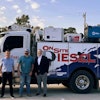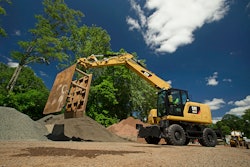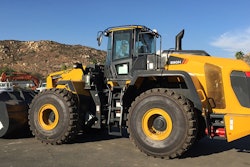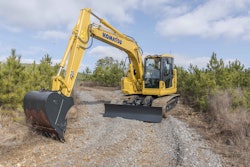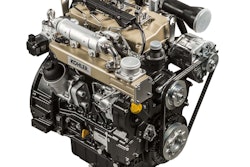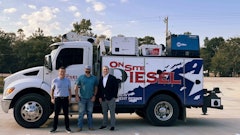
Responses from Oliver Lythgoe, Product Marketing Manager, Perkins Engines Co. Ltd.
Technologies of the Future: Hybrids, Electrification and Smart Systems
In regards to hybrids, what technological limitations currently exist that are impeding the ability to harness the full potential of hybrid power?
The performance demands for off-highway equipment create a challenge for hybridization given current energy storage options – these sophisticated vehicles are required to deliver hard work over long hours in often challenging environments. While most people think of hybrids in terms of electrical energy storage (as is common for light-duty automotive vehicles), some off-road equipment utilizes hydraulic energy storage where duty cycles and equipment tasks lend themselves to this approach. Complete machine system integration (powertrain, hydraulics, etc.) is critical when approaching hybrid design tasks.
What progress is being made by your company and/or the industry in regards to developing fully optimized systems as opposed to individual components [e.g. overall powertrain optimization versus optimizing the drivetrain and engine separately]?
Perkins very much believe that an integrated powertrain approach delivers the best solutions for Original Equipment Manufacturers (OEMs) and machine owners for reliability, productivity and fuel consumption. We’ve been supporting our OEM customers with technologies, as well as our expertise to help push this forward, and still see plenty of opportunity for development in integration of clean diesel engines, hydraulics and electronic systems.
Challenges on the Horizon
What new challenges have arisen that effect the way your company designs or manufactures its products? How it does business? How it goes to market? How it differentiates itself from the competition?
Emissions standards are leading to a convergence in technology recipes between manufacturers. Important technology differences continue to exist but they are increasingly subtle; for example, precious metal “recipes” used in aftertreatment systems, or sealing designs on sensor connectors, or noise signatures in gear-train designs are not readily obvious to customers but can make an impact on product performance, reliability and durability. So product differentiation is more about how well technology has been implemented and integrated rather than which building blocks have been selected.
What new challenges do you see the industry as a whole facing, and how is your company looking to address/provide solutions with which to solve those challenges?
The increasingly complex pattern of global emissions standards is a major challenge for the industry. Our OEM customers want to play in multiple markets to grow their business, but it drives a lot of manufacturing variety and research and development costs. Perkins is responding by offering global platforms so that the OEM can maximize the commonality of powertrain designs between different regions.



